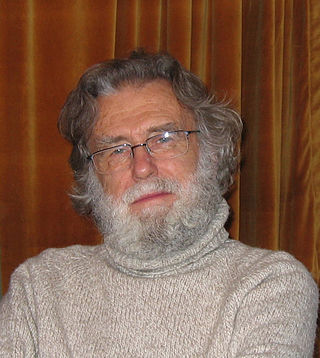Life
Alfred Whitford "Fred" Lerdahl was born on March 10, 1943 in Madison, Wisconsin, US. [2]
Lerdahl studied with James Ming at Lawrence University, where he earned his BMus in 1965, and with Milton Babbitt, Edward T. Cone, and Earl Kim at Princeton University, where he earned his MFA in 1967. At Tanglewood he studied with Arthur Berger in 1964 and Roger Sessions in 1966. He then studied with Wolfgang Fortner at the Hochschule für Musik in Freiburg/Breisgau in 1968–69, on a Fulbright Scholarship. From 1991 to 2018 Lerdahl was Fritz Reiner Professor of Musical Composition at Columbia University; previously he taught at the University of Michigan, Harvard University, and the University of California at Berkeley. Lerdahl was awarded an honorary doctorate from Lawrence University in 1999. He is a member of the American Academy of Arts and Letters.
Lerdahl's maternal uncle was the astronomer Albert Whitford.

Lerdahl has written three books: A Generative Theory of Tonal Music (1983, second edition 1996, with linguist Ray Jackendoff, MIT Press), Tonal Pitch Space (2001, Oxford University Press), and Composition and Cognition (2019, University of California Press). He has also written numerous articles on music theory, music cognition, computer-assisted composition, and other topics.
Lerdahl's music is published by Schott, and Bridge Records is producing an ongoing series of recordings of it. Lerdahl's students include composers Christopher Buchenholz, Zosha Di Castri, R. Luke DuBois, John Halle, Huck Hodge, Arthur Kampela, Alex Mincek, Paul Moravec, Matthew Ricketts, Allen Shearer, Kate Soper, Tyshawn Sorey, Christopher Trapani, Carl Voss, Wang Lu, Eric Wubbels, and Nina Young; and music theorists Elizabeth Margulis and David Temperley. [3]







